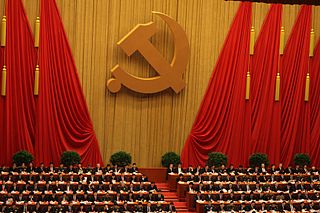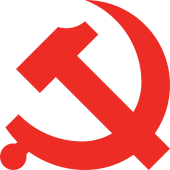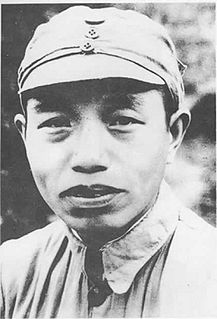The 16th National Congress of the Communist Party of China was held in Beijing between November 8th and 14th, 2002. It was preceded by the 15th National Congress of the Communist Party of China. 2,114 delegates and 40 specially invited delegates attended this and elected a 356-member 16th CPC Central Committee, as well as a 121-member Central Commission for Discipline Inspection (CCDI). The Congress marked the nominal transition of power between Jiang Zemin and Hu Jintao, who replaced Jiang as General Secretary, and a newly expanded Politburo Standing Committee line-up. The institutional transition would be completed in state organs by the 2003 National People's Congress in March. Jiang, however, remained head of the Central Military Commission, therefore in practice, the power transition was not complete. The Party National Congress examined and adopted the amendment to the Constitution of the Communist Party of China proposed by the 15th CPC Central Committee, and decided to come into force as from the date of its adoption. An amendment to the Constitution was approved the Party National Congress, with Jiang Zemin's signature ideology of "Three Represents" written into it. This congress was succeeded by the 17th National Congress of the Communist Party of China.
The 16th Politburo of the Communist Party of China was elected by the 16th Central Committee of the Communist Party of China on November 15, 2002. It was nominally preceded by the 15th Politburo of the Communist Party of China. This was the main vangaurd executive committee functioning within the Standing Committee of the Communist Party of China. It was formally superseded by the 17th Politburo of the Communist Party of China.
The 15th Politburo of the Communist Party of China was elected by the 15th Central Committee of the Communist Party of China on September 19, 1997. It was preceded by the 14th Politburo of the Communist Party of China. It served until 2002.
The 14th Politburo of the Communist Party of China was elected by the 14th Central Committee of the Communist Party of China on October 19, 1992. It was preceded by the 13th Politburo of the Communist Party of China. It served until 1997. It was succeeded by the 15th Politburo of the Communist Party of China.
The 13th Politburo of the Communist Party of China was elected at the 1st Plenary Session of the 13th Central Committee on November 2, 1987, consisting of 17 members and 1 alternate member. During the 2nd plenary session of this politburo, the 1989 Tiananmen Square protests occurred, and were ultimately crushed by the orders of the 13th Standing Committee of the Communist Party of China. This was preceded by the 12th Politburo of the Communist Party of China. It was succeeded by the 14th Politburo of the Communist Party of China.
The 12th Politburo of the Communist Party of China was elected at the 1st Plenary Session of the 12th Central Committee on September 13, 1982, consisting of 25 members and 3 alternate members. It served until 1987. It was preceded by the 11th Politburo of the Communist Party of China. This politburo was reorganized in September 1985, with a retirement of senior members and election of new members. It was succeeded by the 13th Politburo of the Communist Party of China.
The 11th Central Politburo of the Communist Party of China was elected at the 1st Plenary Session of the 11th Central Committee on August 19, 1977, consisting of 23 members and 3 alternate members. There were additions to the membership in 1978 and 1979. It served until 1982. It was preceded by the 10th Politburo of the Communist Party of China.
The 17th Central Politburo of the Communist Party of China was elected by the 17th Central Committee of the Communist Party of China on October 22, 2007. Eventually, four members of this Politburo were expelled from the Communist Party for not adhering to the leading party thought. They were, in order of the time of expulsion, Bo Xilai, Xu Caihou, Zhou Yongkang, and Guo Boxiong. This politburo was preceded by the 16th Politburo of the Communist Party of China and succeeded by the 18th Politburo of the Communist Party of China.
The 16th Central Committee of the Communist Party of China was in session from 2002 to 2007. It held seven plenary sessions. It was set in motion by the 16th National Congress of the Communist Party of China. The 15th Central Committee preceded it. It was followed by the 17th Central Committee of the Communist Party of China.
The 15th Central Committee of the Communist Party of China was in session from 1997 to 2002. The 14th Central Committee preceded it. The China Democracy Party formed in this period, and was suppressed. It held seven plenary sessions. It was followed by the 16th Central Committee of the Communist Party of China.
The 14th Central Committee of the Communist Party of China was in session from 1992 to 1997. It held seven plenary sessions. It was preceded by the 13th Central Committee. It was most certainly succeeded by the 15th Central Committee of the Communist Party of China. It was set in motion by the 14th National Congress of the Communist Party of China.

The 13th Central Committee of the Communist Party of China was in session from 1987 to 1992. It held seven plenary sessions. It was preceded by the 12th Central Committee. It was securely succeeded by the 14th Central Committee.
The 12th Central Committee of the Communist Party of China was in session from September 1982 to November 1987. It held seven plenary sessions. It was securely succeeded by the 13th Central Committee.
The 8th Central Committee of the Communist Party of China was in session from 1956 to 1969. It was most certainly preceded by the 7th Central Committee of the Communist Party of China. It held 12 plenary sessions in this period of 13 years. It was the longest serving central committee ever held by the Communist Party.

The 18th National Congress of the Communist Party of China began on November 8, 2012 at the Great Hall of the People. It was preceded by the 17th National Congress of the Communist Party of China. Due to term and age limits restrictions, seven of the nine members of the powerful Politburo Standing Committee (PSC) retired during the Congress, including Hu Jintao, who was replaced by Xi Jinping as General Secretary of the Communist Party of China. The Congress elected the 18th Central Committee of the Communist Party of China, and saw the number of Politburo Standing Committee seats reduced from nine to seven. It was succeeded by the 19th National Congress of the Communist Party of China.

The Xi–Li Administration of the People's Republic of China began in 2013, when Xi Jinping and Li Keqiang succeeded Hu Jintao and Wen Jiabao following the 18th National Congress of the Communist Party. It is speculated that Xi will solidify the political power of General Secretary of the Communist Party of China, for the absolute command of the Communist ideology over pragmatic approach, and on the economic front there will be no liberalization but socialist entrenchment.

The General Office of the Central Committee of the Communist Party of China, often referred to as the Central Office (中办), is an office directly under the Central Committee of the Communist Party of China in charge of the routine administrative affairs of the Central Committee and its Politburo.
The Central Leading Group for Propaganda and Ideological Work is the agency under the Politburo of the Communist Party of China responsible for nationwide propaganda and information.
The 18th Central Politburo of the Communist Party of China was elected by the 18th Central Committee of the Communist Party of China on 15 November 2012, which was formally elected by the 18th National Congress of the Communist Party of China. It was nominally preceded by the 17th Politburo. It was ultimately succeeded by the 19th Politburo of the Communist Party of China.













